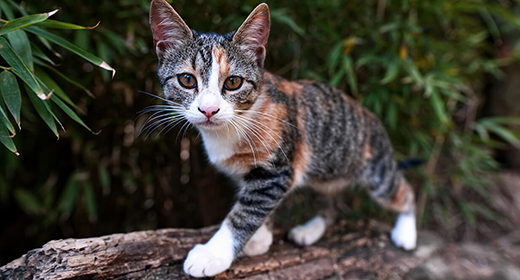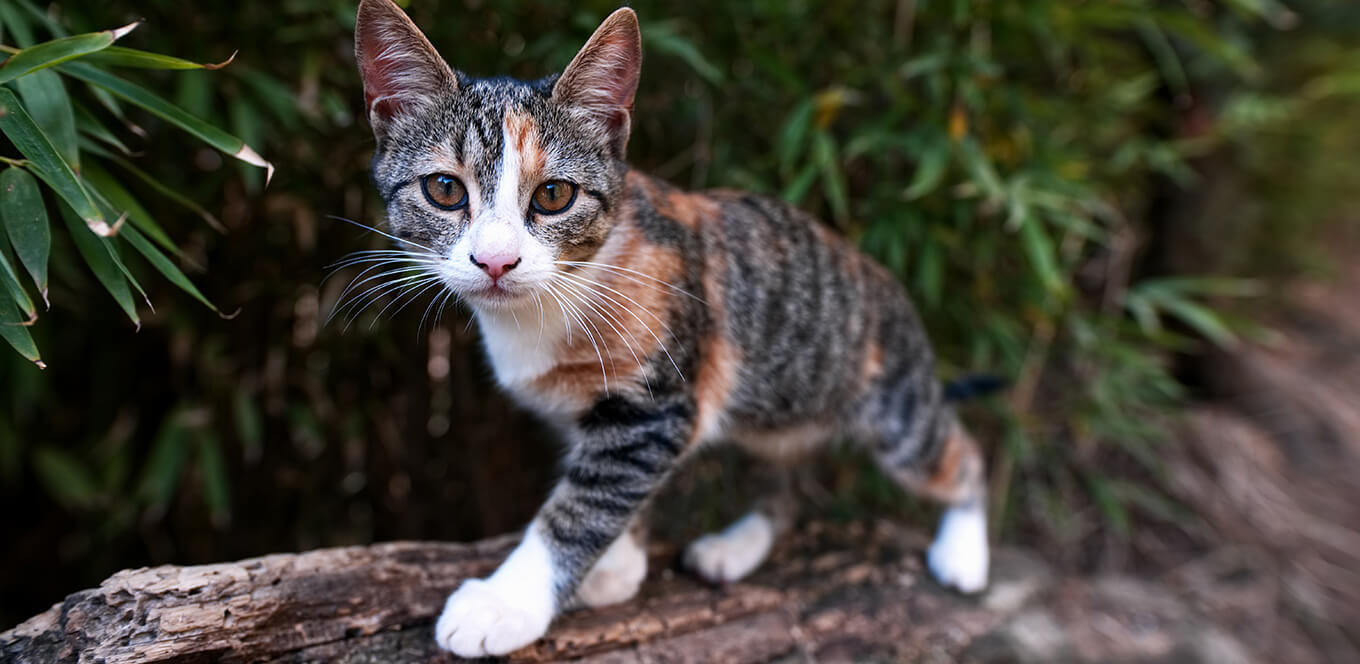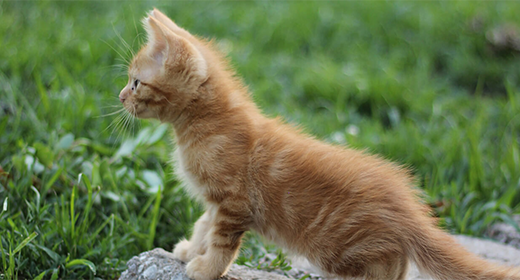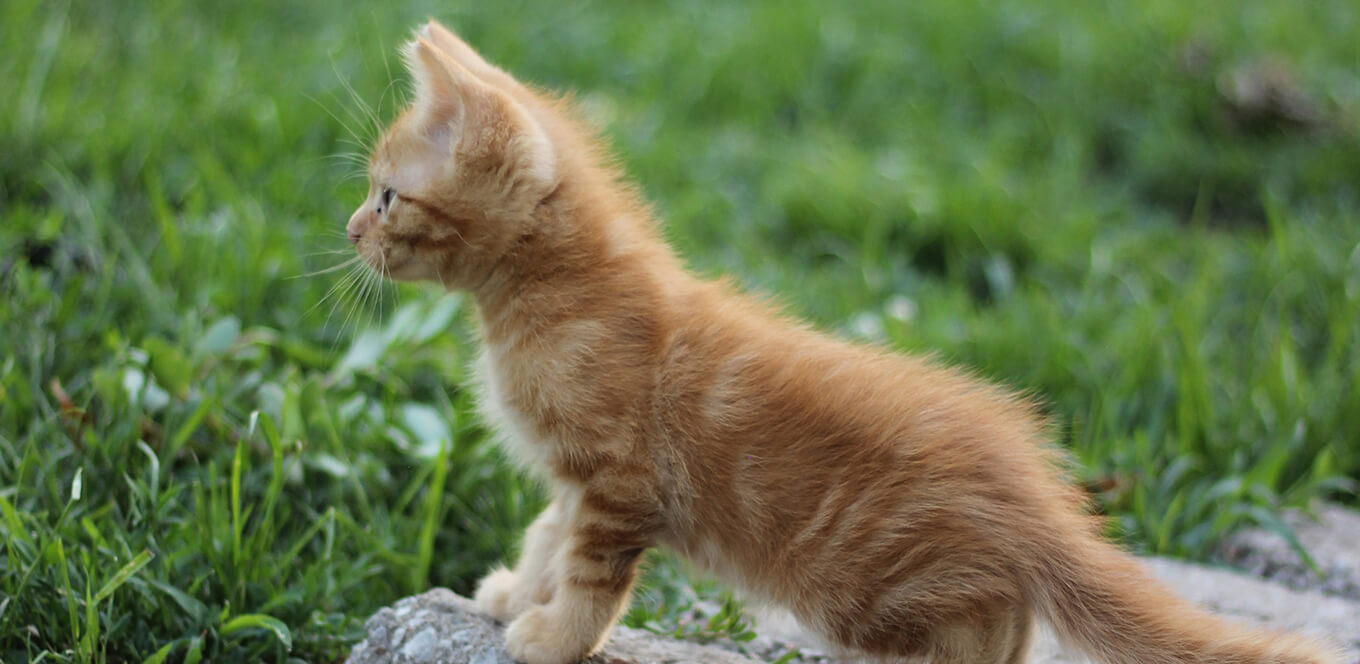

We include fish oil in IAMS™ dry kitten food to help promote healthy skin and a healthy coat in your kitten. Learn more about fish oil and meal, what it does, how it can help your kitten and why it is an important component in all IAMS dry kitten foods.
Fish oil is extracted from fish and is composed of special types of fats. Fish meal, which is used in IAMS dry kitten foods, is a good source of natural fish oil.
Fish oil from deep, cold-water fish contains omega-3 fatty acids. Fatty acids are a smaller component of fat, and omega-3 fatty acids are a type of fatty acid with important nutritional value. Fish oil has a unique fatty acid composition with high concentrations of long-chain omega-3 fatty acids, such as eicosapentaenoic acid (EPA) and docosahexaenoic acid (DHA).
The fatty acids in a kitten’s diet are incorporated into the body’s tissues and are critical for many body functions. For instance, animal cell membranes, including those in the skin, contain fatty acids. Omega-3 fatty acids are responsible for the production of substances that promote healthy skin conditions, especially when balanced with omega-6 fatty acids (found in common ingredients such as chicken fat and corn oil) in a ratio between 5:1 and 10:1.
All IAMS dry kitten foods, such as IAMS™ ProActive Health™ Healthy Kitten, contain fish oil as a high-quality source of omega-3 fatty acids.
Studies conducted by nutritionists at The IAMS Company found significant improvements in skin and coat when cats1 were fed a diet that contained omega-3 fatty acids in a balanced ratio with omega-6 fatty acids versus the same diet without the balanced ratio.
Feeding a complete and balanced diet with a balanced ratio of omega-6 and omega-3 fatty acids is proven to promote healthy skin and a shiny coat. When fed fish oil, cats showed:
1 Data on file, The IAMS Company, 2000.



With all of the different kitten food options and ingredients available, it’s important to learn what your kitten needs and what is less essential. You may have heard of flaxseed meal, an ingredient included in some wet cat foods. Is flaxseed meal, a source of omega-3 fatty acids, a necessity for your kitten?
Learn more about this ingredient and how it can affect your kitten’s health for the better.
Flaxseed meal is the ground seed of the flax plant. The oil in flax is a good source of omega-3 fatty acids like alpha-linoleic acid, which is the parent compound of other omega-3 fatty acids.
In kitten and cat food, flaxseed meal is used to provide omega-3 fatty acids to give a balance of omega-6 to omega-3 fatty acids in the diet. IAMS research shows that balancing the amount of omega-6 and omega-3 fatty acids helps maintain a healthy skin and coat.
Including omega-3 fatty acids like alpha-linoleic acid in a kitten’s diet can help:
Alpha-linolenic acid may be an essential omega-3 fatty acid; however, it may take several generations for the signs of deficiency to become evident in a cat. When choosing a wet food, consider one that contains flaxseed meal to help maintain your kitten’s health during this time of rapid growth and development. IAMS™ Perfect Portions™ Healthy Kitten Pate with Chicken is formulated with omega-3 sources, including flaxseed meal, to provide guaranteed levels of omega-3 fatty acids.
